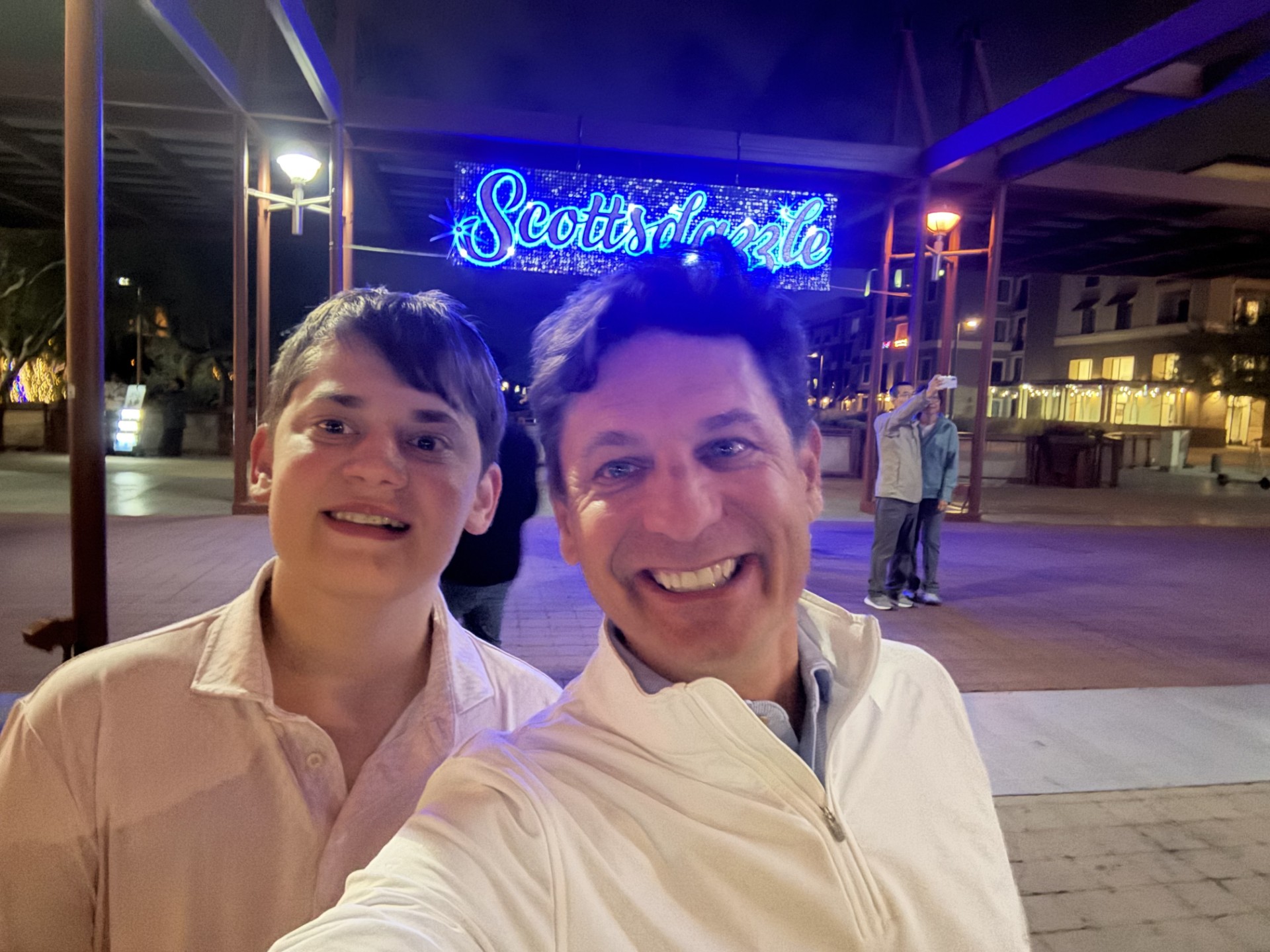For many parents of adolescents with autism, the transition toward independence can feel like uncharted territory. After relocating from Colorado to Arizona, the DeBell family found themselves asking what came next for their 17-year-old son, Max. Almost immediately, they discovered a sense of comfort and belonging within the Southwest Autism Research & Resource Center (SARRC) community.
“We found that SARRC immediately became a vital resource, marking one clear, positive step in the continuous journey to support Max’s growth and development,” Todd DeBell, Max’s dad, shares.
The family specifically found CommunityWorks, a pre-employment program offering teens with and without autism the opportunity to engage in volunteer work throughout the community, exposing them to a variety of work environments while fostering skills essential for independent living and employment.
“I was intensely excited but anxious. This journey quickly transformed from simple supervision into a weekly ritual of connection focused on new experiences. Our support began with a routine we developed together, built on patience and preparing for the week ahead, with the promise of tangible growth,” Todd says.
Together, Max and his father focused on strengthening Max’s ability to work alongside peers, communicate effectively and navigate social expectations in real-world settings. The program’s impact was amplified through consistency at home, Todd recalls, “Our support began with a routine we developed together, built on patience and preparing for the week ahead.”
By pairing structured experiences at SARRC with intentional routines in their daily home life, the DeBells began to see meaningful, tangible growth. As with many new experiences, Max initially approached the program with nervousness. With steady support, however, that anxiety gradually gave way to confidence.
“Our routine was crucial: we worked together to calm his nerves before and in route, gently setting expectations. The real breakthrough, however, happened when the session ended. During quiet “car time” or over a simple dinner, the honest, good conversations emerged. Max would open up about the things he was exposed to — the people he met, the activities he truly liked, and the ones he disliked,” Todd shares.
For Todd, it was a powerful sign that Max was beginning to take ownership of his experiences.
“This post-activity debrief was invaluable. It served as a vital gauge of his comfort and provided clear evidence of his growth and his emerging ability to articulate his own preferences, showing me he was taking ownership of his experience.”
Encouraged by Max’s progress, the DeBell family continues to enroll him in additional SARRC programs, including PEERS® for Adolescents.
“These accessible, evidence-based resources have become an essential part of Max’s ongoing growth, offering consistent support beyond the family unit,” Todd says. “SARRC and their resources continue to be an important asset in his growth and an outside resource to support him. My goal is for Max to continue working on his skills and secure a part-time or volunteer position to help him become more and more independent.”
For the DeBells, SARRC programs have provided more than skill-building opportunities; they have offered reassurance, community and a clearer vision of what independence can look like.

